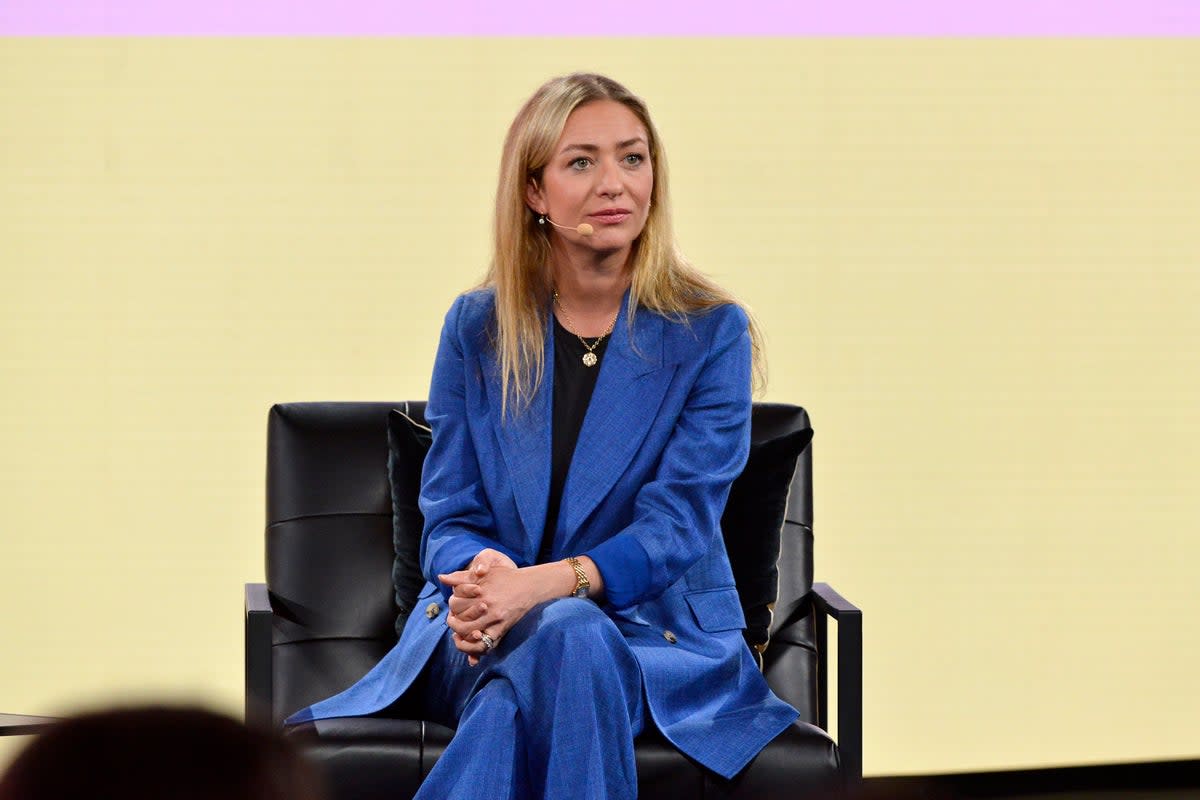Bumble founder suggests AI is the future of dating apps

The founder of Bumble, Whitney Wolfe Herd, has revealed how the app may use artificial intelligence (AI) to test compatibility among users and their matches.
Wolfe Herd spoke candidly about the future of Bumble and its potential changes while appearing at The Bloomberg Technology Summit on 9 May. She shared how AI could affect the dating scene, noting that she wanted it to “help create more healthy and equitable relationships” on Bumble.
The entrepreneur gave an example of how the app could reach its goal, noting that “in the near future”, Bumble users could be “talking to [their] AI dating concierges”.
“You could share your insecurities [with the dating concierge],” she said. “‘I just came out of a breakup. I have commitment issues.’ And it could help you train yourself into a better way of thinking about yourself. And then it could give you productive tips for communicating with other people.”
She specified another way that people could use AI to find out if they’re compatible, before choosing to message each other on Bumble.
“There is a world where your dating concierge could go and date for you, with another dating concierge,” Wolfe Herd continued. “No truly, and then you don’t have to talk to 600 people. It will go scan all of San Francisco for you and say, ‘These are the three people you really ought to meet.’ That’s the power of AI when harnessed the right way.”
Wolfe Herd – who recently stepped down as CEO of Bumble – once again acknowledged how Bumble would be using AI to stay close to its main goal: “A safer, kinder digital platform, for more healthy and more equitable relationships.”
She acknowledged how the company’s use of AI was inspired by Bumble’s once-signature rule, women have to message their male matches first.
“Always putting women in the driver’s seat, not to put men down, but to actually recalibrate the way we all treat each other,” she said. “So AI is going to follow the same set of values. And we are going to lean in fast and furiously.”
This isn’t Wolfe Herd’s first time discussing how AI will shape Bumble. During an appearance on Bloomberg’s podcast, The Circuit with Emily Chang in August 2023, the businesswoman said that AI could help people improve their flirting skills when online dating.
“The average US single doesn’t date because they don’t know how to flirt, or they’re scared they don’t know how,” she claimed. “What if you can leverage the chatbot to instil confidence, to help someone feel really secure before they go and talk to a bunch of people they don’t know.”
Wolfe Herd’s comments about AI concierges come weeks after Bumble announced a major change to its platform. Since the app’s launch, women on Bumble have been required to message their male matches within 24 hours, in order to get the online conversation up and running.
However, now Bumble is offering a new feature that will give men the nudge to start messaging the women they match with first. With the feature, “opening moves,” women can now pick a prompt to send to men to respond to, to initiate the conversation
Speaking to CNN in April, the CEO of Bumble, Lidiane Jones, said that the goal of the redesign is to help the wide variety of people on the dating app form genuine connections with their matches.
“We’re seeing a greater need for authentic human connections,” Jones explained. “I don’t anticipate that the number of people using online dating is going to go down, quite the opposite, but there is a higher bar … So we’re taking it as a great call to action to centre ourselves on our mission.”
According to Jones, the “opening moves” feature is one way for women to feel more empowered on the dating app. Although women still have the opportunity to start the conversation first, the new feature allows them to ask men to make the first move, with prompts including questions about who a match’s dream dinner guest is.
Jones specified to CNN that Bumble will be making some other changes, including an update to its “dating intentions” badges, where users specify what they’re looking for on the app, from a “life partner” to “casual dates”. In addition, the app will require users to include more photos and information in their bios. It will also highlight the common interests that matches share, to help people connect with others that they’re compatible with.
After Wolfe Herd stepped down as CEO at the start of the year, Jones took on the mantle and continued Wolfe Herd’s research into alternate options that could improve upon the company’s signature feature.


